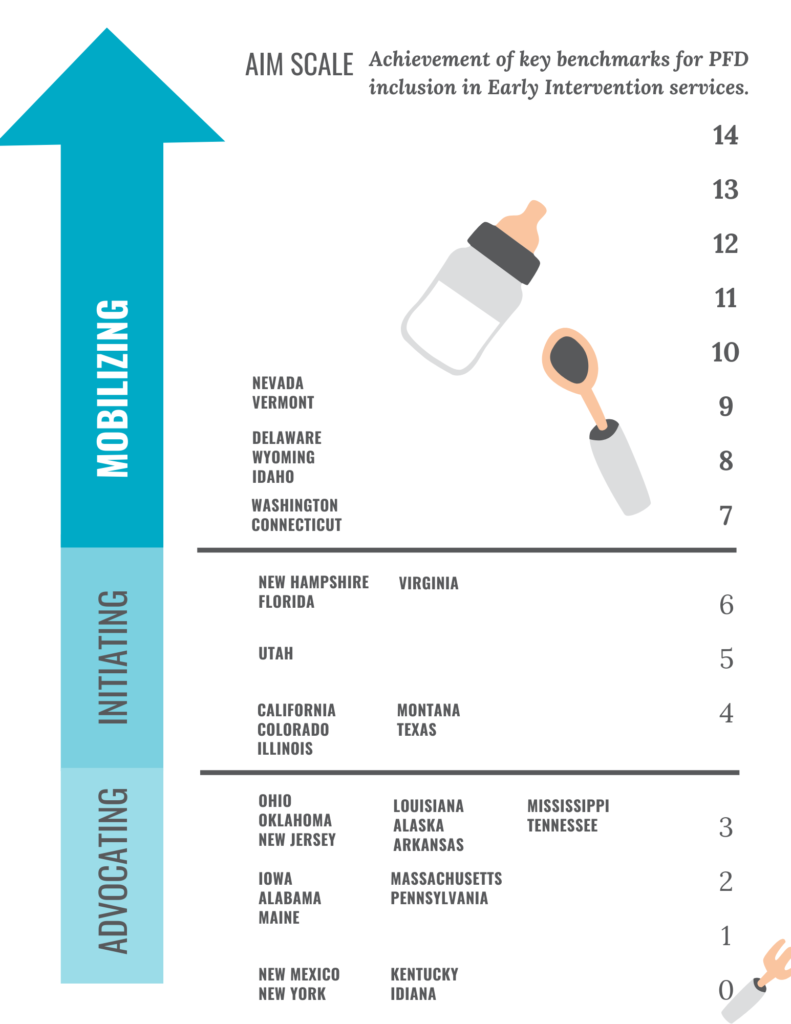Early Intervention Crosswalk
Benchmarking the state of pediatric feeding disorder services in early intervention programs
Early identification and management of pediatric feeding disorder (PFD) plays a pivotal role in improving long-term outcomes for both families and children. Early recognition and timely intervention lead to improved nutrition, better growth, more optimal development and enhanced quality of life for children effected by PFD.
Early Intervention programs established by Part C of the Individuals with Disabilities Education Act (IDEA), were established to address the developmental support needs of children 0-3 years of age. Despite the prevalence of feeding difficulties in young children, early intervention programs may not be equipped to address the unique needs of these children and families. You are invited to learn more about the state of early intervention services and join the campaign to advance the service landscape for PFD.
Current Early Intervention Benchmarks
Click on a blue state on the map above for details
AIM SCORE
- No Response
- 0-4: Advocating for Change (low score)
- 5-8: Initiating Change (middle score)
- 9-14: Mobilizing for Change (higher score)
